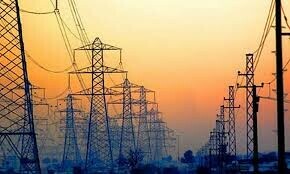MOSCOW: Russia’s government has approved a new tax law to clamp down on Russian companies and individuals using offshore tax shelters.
The law is part of a range of measures initiated by President Vladimir Putin, and collectively known as “deoffshorisation”, which are aimed at bringing Russian businesses and money home from foreign jurisdictions.
Pressure on Russians to move assets and corporate structures to Russia from abroad has intensified this year because of the crisis in Ukraine, which has highlighted the vulnerability of Russian assets abroad to Western sanctions.
The new law would introduce modifications to the tax code that will force Russian owners of companies based abroad to pay taxes in Russia.
“The law considers establishing a mechanism for taxation in the Russian Federation of incomes of controlled foreign companies, if these companies do not distribute their incomes for the benefit of Russian entities, controlling such companies,” the government said in a statement on its website on Saturday.
The government’s approval means the law will now be submitted for consideration by parliament, where it could yet be amended but is unlikely to face strong opposition.
The “deoffshorisation” policy was initiated in 2012 by Putin, who has been annoyed by the decision of many Russian businesses to create offshore ownership structures, typically in tax havens such as Cyprus, which are reducing tax revenues in Russia.
Putin has also backed measures to make officials and parliamentarians divest offshore property and bank accounts.
Under the new law foreign companies and other organisations with Russian owners would be classed as “controlled foreign companies”.
Any Russian company or individual that owns 25 per cent or more of a foreign organisation would be categorised as a “controlling entity”. This threshold would drop to 10pc if the total shareholding of Russian tax residents amounted to 50pc of the foreign company.
Russian-owned companies operating in jurisdictions where they are paying an effective profit tax of 75pc or more, however, would be exempt from the new law.
The government said it would be appropriate to consider raising the ownership thresholds and lowering the effective tax rate threshold to preserve Russian companies’ competitiveness. It nevertheless backed the law, originally prepared by the Ministry of Finance, in its current form.
“We consider that these measures, considered by the law, as a whole will facilitate cutting the use of low tax jurisdictions for receiving unjustified tax advantages, and will also allow taxation of undistributed profits of controlled foreign companies,” the government said in its statement.
“The government of the Russian Federation supports the law.”
Published in Dawn, October 26th, 2014












































Dear visitor, the comments section is undergoing an overhaul and will return soon.